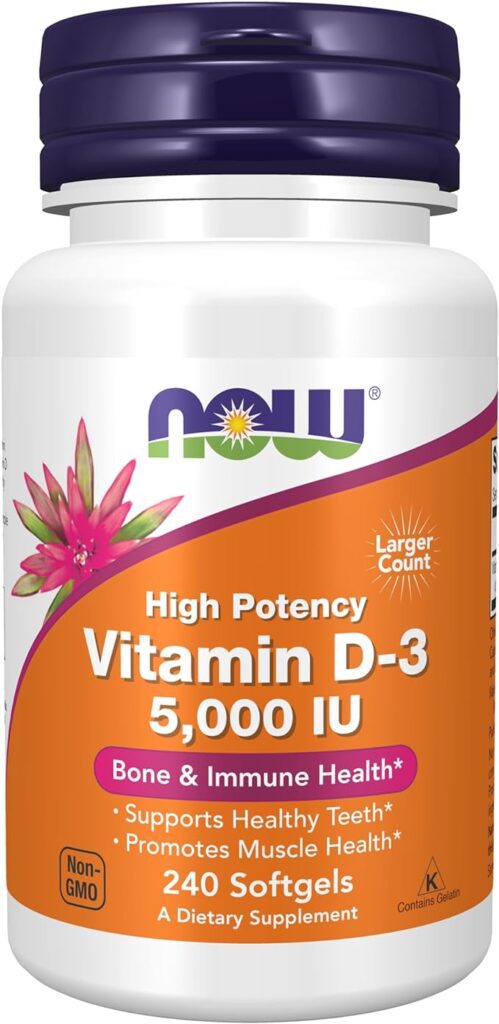“Molly Flexwell helps exhausted caregivers reclaim their energy, self-worth, and joy through practical tools and kindness-led living”
Menopause and pre-menopause are significant milestones in a woman’s life. They often happen at a time of your life when caring for elderly parents or loved ones. Symptoms usually occur after age 50 and have a range of pros and cons. One of the critical benefits of menopause and pre-menopause is the sense of freedom and liberation they can offer. Women can embrace a newfound sense of independence, no longer bound by the fluctuations of monthly hormonal cycles. This blog will explore this concept, uncover the subject’s health concerns, and examine available therapies. So, let’s dive in.
The end of menstruation means no more worries about pregnancy or the need for contraception, allowing women to explore their sexuality and intimacy with a renewed sense of freedom. Moreover, the cessation of menstrual symptoms like cramps, bloating, and mood swings can bring immense relief, enabling women to enjoy life without the physical burdens they once faced.
Emotional Rollercoaster and Psychological Shifts:

While menopause and pre-menopause can offer liberation, it also brings forth emotional and psychological challenges. Hormonal fluctuations during this transition can lead to mood swings, irritability, anxiety, and even depression for some women and carers around that age.
Coping with these emotional changes can be daunting, but seeking support from loved ones, joining support carers groups, or consulting a healthcare professional is essential.
Say Goodbye to Monthly Expenses and Physical Discomforts:
Another advantage of menopause and pre-menopause is the financial relief it brings. Women no longer need to purchase menstrual products; they can save money and redirect those funds toward other priorities. This newfound financial freedom empowers women to invest in other essential aspects of their lives, fostering economic independence.
Bone Health Concerns and Hormonal Adjustments:
Menopause and pre-menopause also present some challenges that we women need to be aware of, such as bone health concerns and hormonal adjustments. Estrogen, a hormone crucial for maintaining bone density, decreases during menopause, potentially leading to an increased risk of osteoporosis.
Osteoporosis is characterised by weakened bones, making them more susceptible to fractures and breaks. It occurs when the density and quality of bone are reduced, often due to hormonal changes, particularly the decline in estrogen during menopause. This condition underscores the importance of proactive measures, such as a healthy lifestyle, adequate nutrition, and medical guidance, to mitigate the impact of bone health challenges that may arise during this phase of life.
To address these challenges, prioritising a balanced diet rich in calcium and vitamin D becomes essential for maintaining optimal bone health. Regular exercise, particularly weight-bearing activities, can further strengthen bones and mitigate the risks associated with decreased estrogen levels. Staying informed and consulting healthcare professionals can empower women to navigate menopause proactively and informatively.
ADVERTISING
NOW Vitamin D-3 5,000 IU,240 Softgels.
4.8 out of 5 stars 35,800 ratings

Are you looking for a natural and effective way to support your bone and dental health? Do you want to boost your immune system and mood with a high-potency vitamin D supplement? If so, you need the NOW Vitamin D-3 5,000 IU,240 Structural Support – 5,000 IU Highest Potency Softgels.
Vitamin D is essential for absorbing calcium and phosphorus, which are the building blocks of your bones and teeth. It also helps regulate your immune system, mood, and hormone levels. However, many people lack vitamin D due to sun exposure, diet, or other factors. That’s why supplementing with vitamin D can benefit your health and well-being.
The NOW Vitamin D-3 5,000 IU,240 Structural Support – 5,000 IU Highest Potency Softgels are the perfect choice for anyone who wants to get the most out of their vitamin D intake. They contain 5,000 IU of vitamin D-3, the most bioavailable and preferred form of vitamin D. They are also easy to swallow, non-GMO, and free of gluten, soy, and dairy. They are manufactured in a GMP-certified facility and tested for purity and potency.
Don’t wait any longer to experience the benefits of vitamin D for yourself. Order the NOW Vitamin D-3 5,000 IU,240 Structural Support – 5,000 IU Highest Potency Softgels today and enjoy a healthier and happier life.
*********
So, What’s the Research?
Below are some general areas of research and advancements related to menopause that have been explored in recent years:
Hormone Therapy: Hormone Therapy (HT), also known as hormone replacement therapy (HRT), has been a topic of ongoing research. Studies have aimed to understand the benefits and risks associated with using hormones, such as estrogen or a combination of estrogen and progesterone, to manage menopausal symptoms.
Non-Hormonal Therapies: With concerns surrounding hormone therapy, there has been a growing interest in exploring non-hormonal treatment options for menopausal symptoms.
Menopause and Cardiovascular Health: Cardiovascular disease is a significant concern for women as they age, and menopause can impact cardiovascular health.
Cognitive Function: Menopause has been associated with specific mental changes and an increased risk of cognitive decline or dementia. Recent studies have examined the impact of menopause on memory, attention, and other cognitive abilities.
Research into menopause has focused on alternative therapies like selective serotonin reuptake inhibitors (SSRIs), selective norepinephrine reuptake inhibitors (SNRIs), and other medications that may provide relief from symptoms such as hot flashes, mood changes, and sleep disturbances. Menopause research has also investigated the association between menopause and cardiovascular risk factors, including changes in cholesterol levels, blood pressure, and arterial stiffness. Understanding these relationships can help develop strategies to reduce the risk of cardiovascular disease in postmenopausal women.
What About Alternate Therapies
Alternative Therapies for menopause refer to non-medical approaches that aim to alleviate menopausal symptoms and promote well-being. While individual experiences may vary, here are some alternative therapies that women often explore during menopause:
Herbal Remedies: Certain herbs and botanicals have been used traditionally to manage menopausal symptoms. For example, black cohosh, evening primrose oil, red clover, and dong quai are popular herbs that some women find helpful for reducing hot flashes, night sweats, and mood swings.
Acupuncture: Acupuncture, an ancient Chinese medicine practice, involves the insertion of thin needles into specific points of the body. Some women find acupuncture helpful for managing hot flashes, insomnia, mood swings, and other menopausal symptoms. Research suggests that acupuncture may stimulate the release of endorphins, which can help regulate hormone levels and promote overall well-being.
Mind-Body Techniques: Mind-body techniques, such as meditation, deep breathing exercises, and mindfulness practices, can help reduce stress, promote relaxation, and improve overall emotional well-being. These techniques can be valuable in managing mood swings, anxiety, and sleep disturbances commonly associated with menopause.
However, it’s important to note that herbal remedies may interact with medications or have potential side effects, so it’s advisable to consult a healthcare professional before using them.
Yoga and Menopause and Gratitude Journaling

While individual experiences may vary, practising yoga and gratitude jouranalin during this life stage can help manage specific menopausal symptoms and improve overall well-being.
During perimenopause and menopause, gratitude journaling can steady a changing body and mind, easing stress, lifting mood, and helping sleep settle after the heat of a hot flush.
Noting three small moments of comfort each day retrains attention toward what feels supportive, which softens anxiety, irritability, and brain fog.
Over weeks this gentle daily practise builds resilience and self compassion, turning an unpredictable season into one that feels more anchored, meaningful, and kind.
Some women find that certain yoga poses and breathing exercises help reduce the frequency and intensity of hot flashes and night sweats.
Menopause can be accompanied by increased stress and anxiety. Yoga practices, including mindful breathing (pranayama), meditation, and gentle movement, can help promote relaxation, reduce stress, and improve overall emotional well-being.
Yoga has been shown to impact mood and sleep patterns positively. Regular yoga practice may help alleviate mood swings, irritability, and insomnia, which can be expected during menopause. Specific poses, such as standing forward bend (Uttanasana) or seated forward bend (Paschimottanasana), can help calm the nervous system and promote relaxation. Weight-bearing yoga poses, such as Warrior II (Virabhadrasana II) or Tree pose (Vrksasana), can help build and maintain bone strength.
Menopause and pre-menopause are times of transition and change in a woman’s body. Yoga can promote body awareness and self-care, allowing women to tune in and listen to their body’s needs. Gentle yoga practices, such as gentle stretching, restorative yoga, or yoga nidra (deep relaxation), can help nurture and support the body during this transformative period.
In summary, menopause, with its pros and cons, represents a profound transition in a woman’s life. It offers freedom from menstruation, physical discomforts, and monthly expenses while also bringing forth emotional challenges and the need for hormonal adjustments.
Adopting a healthy lifestyle can positively impact menopausal symptoms. Regular exercise, maintaining a balanced diet rich in fruits, vegetables, and whole grains, managing stress, getting sufficient sleep, and avoiding triggers like caffeine, alcohol, and spicy foods can all contribute to better overall well-being during menopause.
By acknowledging both the advantages and disadvantages of this stage, women can navigate menopause with resilience, seeking support, and prioritising their overall health and well-being. Embracing this new chapter in a woman’s life can lead to personal growth, empowerment, and a renewed appreciation for the journey of womanhood.
” Let kindness embrace every twist and turn. A gentle reminder that compassion towards oneself and others in change creates strength, resilience, and the beauty of shared understanding.”
Molly
The Wellness Hive For Caregivers Collections
The Wellness Hive for Caregivers Collections/ Shop is a gentle corner of the internet devoted to the people who hold everything together. It is a shop designed for caregivers, nurses, shift workers, and supporters who are giving so much of themselves and want simple ways to refill their own cup. Inside, you will find kind, practical wellness tools that make everyday care a little lighter and a lot more loving.
What we offer
- Caregiver self-care tools: gratitude journals, affirmation cards, reflection prompts, and gentle grounding practices that fit into real life.
- Planners and diaries: week-to-view wellness diaries, daily routines, and printable planners that help you protect your time and energy.
- Mindful downloads: instant digital guides for breathing, grounding, and journalling, plus caregiver checklists and calm-in-a-minute rituals.
- Beautiful gifts: Art Nouveau and stained-glass inspired designs in soft, uplifting colours that bring a little joy to a long day.
- Resources for burnout prevention: practical strategies for boundaries, rest, and recovery, created with caregivers in mind.
Who it is for
- Family caregivers who are balancing appointments, emotions, and the unexpected.
- Nurses and healthcare workers seeking quick, repeatable resets between shifts.
- Mothers and parents who want five calming minutes that actually work.
- Anyone feeling overwhelmed and ready for small steps back to clarity and calm.
How our products help
- Reduce decision fatigue with ready-to-use checklists, routines, and prompts.
- Support mental health with simple grounding exercises and gratitude journalling.
- Build resilience through tiny, consistent practices that fit into busy days.
- Make self-care visible with beautiful tools that invite you to pause and breathe.
What makes us different
- Created by a caregiver for caregivers, with lived insight and compassionate design.
- Evidence-informed practices translated into everyday language and easy routines.
- A kindness-led philosophy that treats rest and support as necessary, not optional.
- Art that soothes: bees, florals, and stained-glass motifs that feel hopeful and calm.
How it works
- Digital items arrive instantly so you can start today.
- Physical items are printed with care and packed as if they were for a friend.
- Clear, human support if you ever need help choosing or using a product.
Our promise
Molly Flexwell helps exhausted caregivers reclaim their energy, self-worth, and joy through practical tools and kindness-led living. We will never add to your overwhelm. Every product focuses on clarity, usefulness, and kindness, so you can move through your day with more steadiness and a little more light.
The Wellness Hive for Caregivers Collections
Click On The Link To Learn More: https://www.hopkinsmedicine.org/health/conditions-and-diseases/introduction-to-menopause
